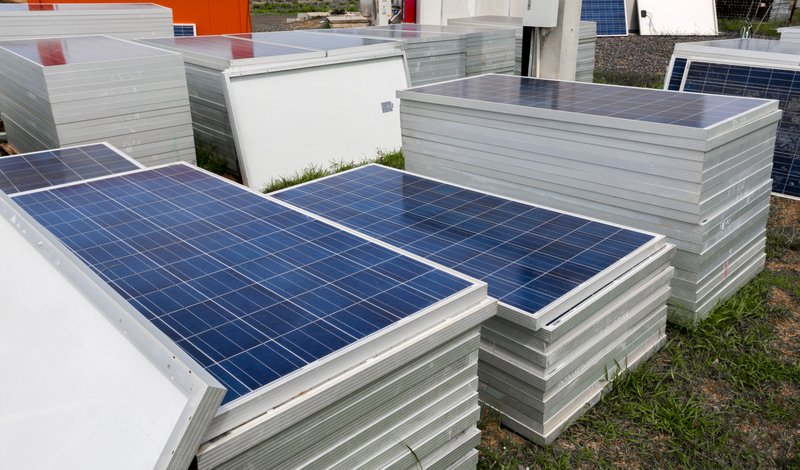Rethinking career paths: The case for blue collar jobs in solar

By: Riley Neugebauer and Will White
White-collar jobs are perceived as the only path to job security and financial success, while blue-collar jobs have been associated with grueling physical labor and few benefits. Now, skilled trades are experiencing a resurgence thanks to pay and benefits that are competitive with corporate America. The distinctions between blue-collar and white-collar work are also becoming less defined as skill demand, pay, and values shift, making both paths viable options — especially in the solar industry. Given these changing dynamics, it’s important to examine the realities of both career paths for young people about to enter the workforce or those considering a switch.
The changing workforce landscape
The workforce is on the brink of a major transformation. According to the nonprofit The Conference Board, predictions indicate a potential shortage of blue-collar workers due to Baby Boomers retiring on a massive scale in the near future. At the same time, the younger generation is rejecting the “college-first” mentality, recognizing that a four-year degree is not the only path to success.
Take Will, for example. His experience transitioning from a solar installer and foreman to a director of operations and now Solar Application Specialist at Fluke is a testament to the fluidity between roles. Today, he bridges both the corporate and blue-collar world.
Riley’s journey paints a similar picture. Her experience navigating both office-based and field roles underscores the need for accessible training programs for workers entering or transitioning between roles. Both Will and Riley’s stories highlight the expanding career possibilities in the rapidly growing renewable energy sector.
Breaking blue collar stereotypes
The traditional stereotypes surrounding blue-collar jobs have mostly become outdated in the last decade – especially in the renewable energy industry. Roles such as solar installers, electricians and construction workers offer job stability and competitive salaries with robust benefit packages.
Another one of the rewarding aspects of working in the trades is that it provides a sense of immediate impact, collaboration and accomplishment that can be missing from office jobs. Many skilled tradespeople enjoy seeing the fruits of their labor in real time, whether installing a new solar panel system or repairing a faulty EV charging station.
Technological advancements like AI and automation are also shifting the narrative. While some are concerned about office workers being displaced, the physical nature of many blue-collar roles–like installing wiring, mounting solar panels and maintaining EV charger stations–require human hands and make them less replaceable.
Despite these opportunities, the trades are struggling to find enough workers. Initiatives like the Solar Jobs Census consistently report a workforce gap. One solution is diversifying the talent pipeline by encouraging more women and other underrepresented groups to enter the trades–a step that is not only necessary but long overdue.
The need for diverse pathways to success
College may be the right fit for some, but it’s not the only pathway to success for everyone. According to a 2024 Strada Education Foundation report, more than half of college graduates were unemployed within a year of graduation. For many young people, the financial burden of a four-year degree combined with a shaky job market can make trades an attractive alternative.
Understanding individual strengths, interests, and lifestyle preferences is key to making informed career choices. Riley advocates for young people to dip their toes into various careers early on through internships, externships, and pre-apprenticeships. Exposure to different fields can lead to clearer career choices and help students develop a stronger sense of their skills and passions.
Programs like Grid Alternatives are paving the way by placing a high value on job placement for underrepresented groups, while nonprofits like Solar for Women highlight the critical need for mentorship and training opportunities to create opportunities for women to enter and thrive in the trades.
Schools and colleges can create more opportunities for students, such as boot camps, shadowing professionals, pre-apprenticeships, and apprenticeships. Companies like Fluke offer a range of free online training courses on topics such as solar, thermography, and electrical measurement safety. Employers can also do more to recruit a more diverse workforce and also offer more in-house training opportunities to help build up the confidence of those who may not have prior experience.
As the distinctions between blue-collar and white-collar work continue to blur, it’s more important than ever to encourage young people to explore all career options. Success looks different for everyone, and decisions should be guided by personal goals, interests and lifestyle preferences rather than societal expectations.
Whether someone wants to work with their hands installing solar panels or prefers typing behind a desk, both paths can lead to rewarding careers.
Riley Neugebauer is a Solar Electrician and Founder of Solar for Women, and Will White is a Solar Applications Specialist at Fluke.





Comments are closed here.